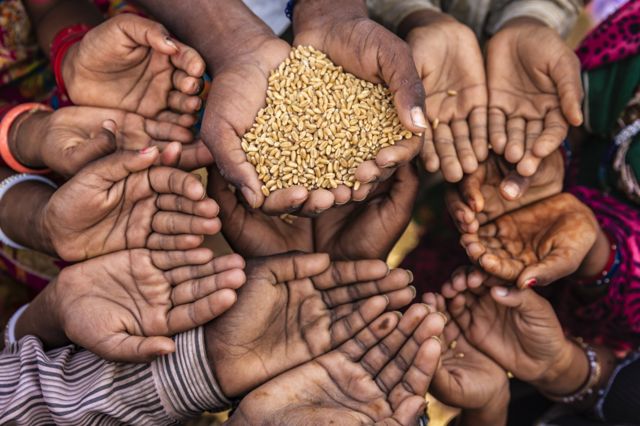The world’s population has reached 8 billion and is expected to continue to rise at a rate of about 1% per decade until at least 2050.
More people mean more mouths to feed. The way we eat has changed dramatically in recent years, with increasing demand for resource-intensive foods affecting the environment. Modern eating habits have put pressure on the planet’s resources, endangering global food security. risk and contribute to accelerating global warming, which requires thinking about the importance of preserving our food resources.
What is food security and why is it important?
There are many definitions of global food security. The United Nations Committee on World Food Security describes it as a state “in which all people, at all times, have physical, social and economic access to sufficient, safe and nutritious food that meets their food preferences and nutritional needs for an active and healthy life.”
Access to adequate food is one of the most basic human rights, but hundreds of millions of people suffer from hunger, with nearly 25,000 people going hungry every day and an estimated 854 million people suffering from malnutrition.
The COVID-19 pandemic has significantly threatened food security around the world, increasing global hunger levels by an estimated 118 million people worldwide in 2020, the largest number since 2006.
Hunger kills more people than HIV/AIDS, malaria and tuberculosis combined, most of whom live in developing countries, and it is these countries that are now suffering the worst consequences of the current food crisis.
In 2012, The Economist first published the Global Food Security Index, a tool that measures food security in 113 countries. Annual rankings show that this varies greatly around the world. Some regions are more vulnerable to food insecurity due to a lack of fertile land. and capital to buy enough food through the purchase of imports, and some external factors such as sudden armed conflicts such as the ongoing war between Ukraine and Russia, or global health issues such as the pandemic can jeopardize food supplies in “safer” countries as well.
Ireland, Austria and the United Kingdom rank first
According to the 2021 Index, Ireland, Austria and the United Kingdom share the top spot with total GFS scores in the range of 81 and 84 points on the index, proving that these countries have sufficient and affordable food supplies and natural resources to support their populations, as well as appropriate food safety net programmes.
The six worst performing countries that year were in Africa, with scores ranging from 34 to 37 due to the poor availability and affordability of the food supply, as well as very low quality and safety standards.
The world’s population is growing at a rate of about 1% each year, a significant drop from the 2.2% growth rate 50 years ago, and it is estimated that by 2050, it will increase by another two billion people, bringing the total number of people living on Earth to nearly from 10 billion.
This rapid population growth can have disastrous consequences for our planet by putting pressure on its resources, particularly on the food supply.
There are many factors linking population growth to food security, ranging from dramatic changes in human diets to the ways in which we produce food. On the one hand, especially in rich countries, people are getting richer and eating more.
On the other hand, they choose foods that are more resource-intensive and environmentally impactful. As demand grows, resources decrease. To meet the ever-increasing demand, food production had to be increased, which was pushed to the brink of exceeding the limits of the planet. The agricultural system in Te Uday struggles To provide enough food to meet this need.
1.2 billion tons of food waste annually
Another big problem with our current global food system is the amount of food waste we produce. Shockingly, despite the high demand for food, we still throw away about a third of the global supply each year, which is equivalent to 1.2 billion tons of food.
Research suggests that if high-income countries cut post-harvest waste by 50%, the number of undernourished people in poor countries could drop by as much as 63 million. It becomes clear that reducing food waste can It leads to a significant improvement in global food security.












